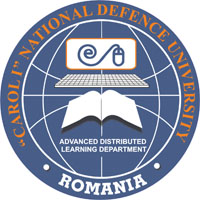PLACE AND ROLE OF NATIONAL COLLEGE OF HOME AFAIRS WITHIN SPECIAL LEARNING ENVIRONMENTS
PLACE AND ROLE OF NATIONAL COLLEGE OF HOME AFAIRS WITHIN SPECIAL LEARNING ENVIRONMENTS
Author(s): George-Marius Ţical, Georgică PANFILSubject(s): Education
Published by: Carol I National Defence University Publishing House
Keywords: internal affairs; management; European courses
Summary/Abstract: The paper presents the main characteristics and related issues to National College of Home Affairs, a leading institution in the field of continuous training on matters directly related to home affairs area. The presence of National College of Home Affairs - ranked as faculty and functioning under the subordination of "Alexandru Ioan Cuza" Police Academy - within Romanian educational environment is a definite necessity for all the personnel from the superior layers of management, law enforcement, administration and other target groups, providing the support and training required by the new realities generated by dynamics of risks and threats from European an global security area. The creation of the College itself was a challenge required by the realities, as well as by the existence of similar institutions in the field of Intelligence training and National Defense training. Beyond this aspect, National College of Home Affairs follows the tendencies of other European institutions, together with new threats and risks emerging from societal dynamics and realities. The implications of changes within European security climax are also affecting the basic needs for training in the area of home affairs. The conclusions are underlining the importance and the usefulness of this special learning environment - because of its specificity, sensitivity and complexity for the domain of Internal Affairs. The research methods used within the content of the article are mainly the case study (assessment of the institution itself), as well as transversal (present situation) / longitudinal (evolution and history) analysis, in order to identify the main characteristics and to provide a better understanding of the specificity of this type of institution characterized by unicity.
Journal: Conference proceedings of »eLearning and Software for Education« (eLSE)
- Issue Year: 11/2015
- Issue No: 01
- Page Range: 129-132
- Page Count: 4

